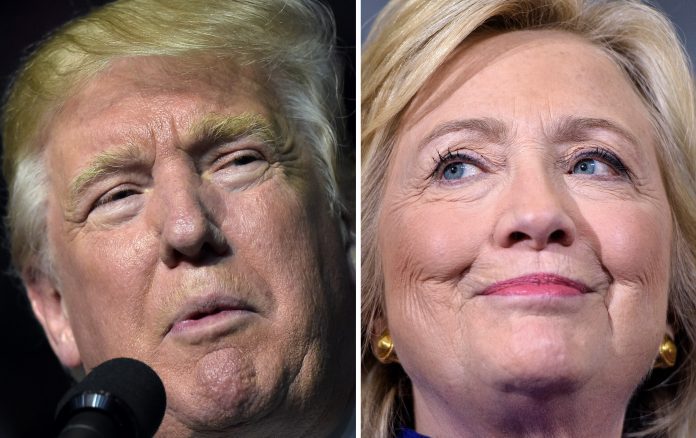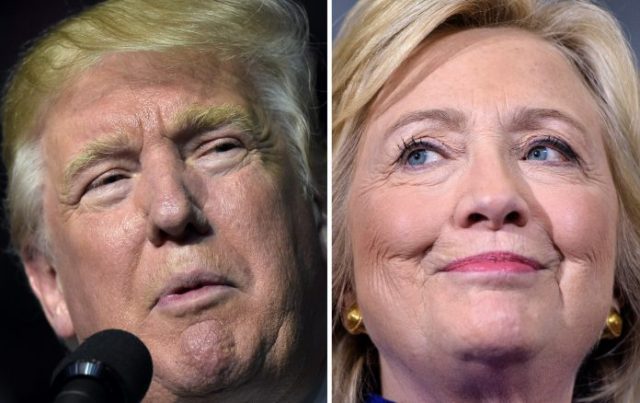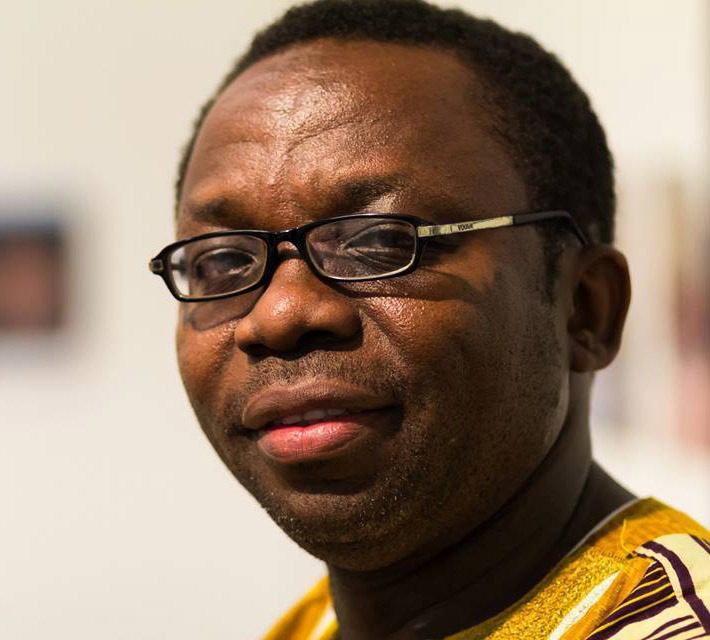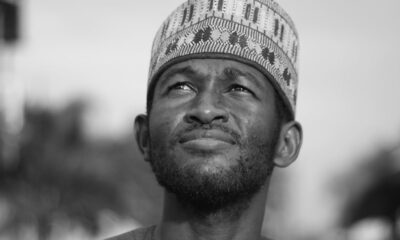Global Issues
Can America avoid a disputed 2016 presidential election? -By Bisi Olawunmi


With the last of America’s three presidential election debates concluded on Wednesday, October 19, 2016, the two major party candidates, Hillary Clinton of the Democratic Party and Donald Trump of the Republican Party are now in the home stretch of the presidential race. Over 100 million Americans are expected to go to the polls on November 8, 2016, to cast their ballots for the next president of the United States. It will be an historic moment: the first female major party candidate in contention with the first political establishment outsider. This was, however, not the race the political pundits predicted. As far back as 2012, there had been the projection that 2016 US presidential election would be a battle of the emergent American political dynasties – Clinton and Bush dynasties. The projected scenario was between Hillary, wife of former President Bill Clinton, and Jeb Bush, son of former President George H.W. Bush and younger brother of former President George W. Bush. Jeb Bush is former Governor of Florida, during whose tenure the controversial Florida vote recount got awarded to his elder brother, a development that won him (George W.) the White House in 2000.
However, the entry of billionaire businessman, Donald Trump, into the Republican primaries contest created unanticipated dynamics that threw spanner in the works. From being dismissed as a mere political irritant by the Republican Party establishment at the beginning of the primaries, Trump was to generate an unstoppable momentum that caught the political barons gasping and grabbing for straws, any straw, to stop what has turned out a political Hurricane Trump. It was not to be. Jeb Bush, the anointed candidate, ran such a lacklustre campaign that never got off the ground and was one of the early aspirants to sulkingly throw in the towel. He quitted, negating the Bush family tradition of never being a quitter. The eventual emergence of Trump as the Republican presidential candidate, against the wishes of the Republican lords, was a de-mystification of the Bush dynasty. It was, therefore, no surprise that Bush, the father, is so angry for his son’s rejection by fellow Republicans during the primaries that he was reported as planning to vote for Mrs Clinton. The trepidation in America’s political establishment now is the fear of Trump achieving the unthinkable – the defeat of Clinton come November 8. There is thus an obvious rallying of the political establishment, across Republican and Democratic political divides, in a last ditch effort to stop Trump from getting to the White House.
A stop Trump campaign at the voting stage must, however, be handled with care for him not to be incensed enough to bring down the roof on everybody. Trump served notice of a fight at the last presidential election debate by refusing to commit himself to accepting the outcome of the November 8 election. He has since modified his position that his non-acceptance of the result is if it is tainted. The boost he got in the last debate has energised his campaign, giving him a feeling of an outside chance of winning. Meanwhile, the Republican candidate has literally become a political orphan with many party leaders abandoning him after the first presidential debate but with some beating a retreat after his performances in the second and final debates. But as noted by Senator Barry Goldwater, the defeated Republican presidential candidate in the 1964 election, “Republicans, divided in a primary contest, never seem quite able to get back together” unlike the Democrats. In fact, Goldwater attributed his loss in the presidential election to his being dubbed a warmonger in the bruising primary: “By early September, it became apparent that I would never recover from the image of Goldwater which had been projected to the American voters by my Republican challengers in the primary period”.
It would seem that 52 years later, history may be repeating itself in the Republican candidacy of Trump, given the unrelenting bruising from his party members. In contrast, the Democrats have rallied behind Clinton and replicating the John F. Kennedy appeal in the 1960 presidential campaign “built on charm, enthusiasm and the sycophantic attitude of the national press and a Hollywood-style publicity campaign”. Just like in 1960 when even at the primaries stage “the notion that Jack Kennedy would be invincible in the general election began to take shape”, so it has been with Mrs Clinton – a projection of the inevitability of her election into The White House right from the primaries. In spite of misgivings in many quarters, the Clinton machine has been able to deflect potentially fatal political blows, including those related to her husband’s sexual escapades, and seems to be cruising inexorably to the American presidency.
The bright prospects of a Hillary Clinton presidency notwithstanding, this projection is not iron cast. In the few days to the election, developments could unfold that could throw the presidential election into a tailspin. Trepidations, thus, remain in political establishment circles, given Trump’s unorthodox campaign style, his fanatical grass roots supporters and a daring, fighting spirit. Should there be credible evidence of electoral manipulation, then America may face a traumatising challenge that may explode the myth of the efficacy of its democracy and expose the fraud that it is in practice. A signal that Trump is bracing for battle is his frequent use of the word “rigging” in his campaign outings which until now has been taboo with regard to American elections, even when there have been glaring instances which qualify for the word usage. Up till now, there seems to be an unwritten rule for election losers to sulk away when their low key court challenges fail to remedy an electoral heist. That may be about to change. Controversies have trailed a number of American presidential elections, the two most quoted being the 1960 and 2000 presidential elections. In the 2000 contest between Vice President Al Gore and George W. Bush, the battleground was Florida state, where Jeb Bush, George W.’s younger brother, was governor. The Florida result was the last to be declared, with Al Gore having 266 electoral votes to George Bush’s 246 electoral votes. A candidate needed a minimum of 270 electoral votes to be elected President – Gore being short by just four votes and Bush 24 votes. Going by America’s winner-takes-all system, whoever has the majority of popular votes in Florida gets all the 25 electoral votes at stake, making Florida a decisive state in who gets elected president. The two candidates were running neck-to-neck in votes but with prospects of it being tilted in favour of Bush prompting Gore to demand recounts. These became protracted, including manual count, in a technologically advanced USA! According to a report published in quora.com, “Ultimately, the election was decided by the people who decided to stop the count and call the election for George W. Bush. It was called by Republican Secretary of State, whose boss, Florida’s Governor, was Bush’s brother”. That decision, according to the Internet site, “was upheld by the Supreme Court which voted directly along party lines, meaning the five Republican Justices ultimately put Bush in office”. In the end, Bush was awarded 12,912,790 votes (49 per cent) to Gore’s 12,912,253 (49 per cent) in the Florida recount as a result of which only a contentious 537 votes gave Bush the American presidency, by adding all the 25 Florida electoral college votes to reach 271 votes, just one vote beyond the minimum. In fact, nationwide, Gore had more popular votes -50,999,897 (48.38 per cent) to Bush’s 50,456,002 (47.87 per cent). That is the oddity of America’s winner-takes-all election system! What is significant is that neither the aggrieved politicians nor the media used the word – rigging. That is a convention Trump is ready to breach and which will substantially diminish America and expose its ugly political underbelly.
In the 1960 contest between Senator John F. Kennedy and Vice President Richard M. Nixon, the election result was declared the “closest in the 20th century when measured by popular vote” where Nixon lost by 113,000 out of 68 million ballots cast mainly due to alleged electoral manipulation of the vote in Illinois, courtesy largely of the political machine of Mayor Richard Daley of Chicago, where Nixon lost by 8,858 votes. According to a report by Neil Russo, a special prosecutor, Morris Wexler, had found substantial miscounts in 1,367 precincts examined, including unqualified voters, misread voting machines and math mistakes. The prosecutor was reported to have brought contempt charges against 667 election officials, but the cases were dismissed by a Democratic Judge, Thomas Kluczynsky, whom President Kennedy later appointed to the federal bench. Republicans had not vigorously pressed charges, because according to Nixon, he would not want to diminish the office of the president of the US. But as American music icon and Nobel laureate, Bob Dylan, sang, “Times Are a Changing” and a Trump already alienated by the political establishment and the American mainstream media may have no constraints in initiating a high profile challenge of the 2016 US presidential election should there be a brazen manifestation of electoral heist. Will America be able to avoid this potentially humiliating showdown?
Dr. Bisi Olawwunmi, a former Washington Correspondent of the News Agency of Nigeria, is a Senior Lecturer, Department of Mass Communication, Bowen University, Iwo. olawunmibisi@yahoo.com Phone, SMS only: 0803 364 7571.
















